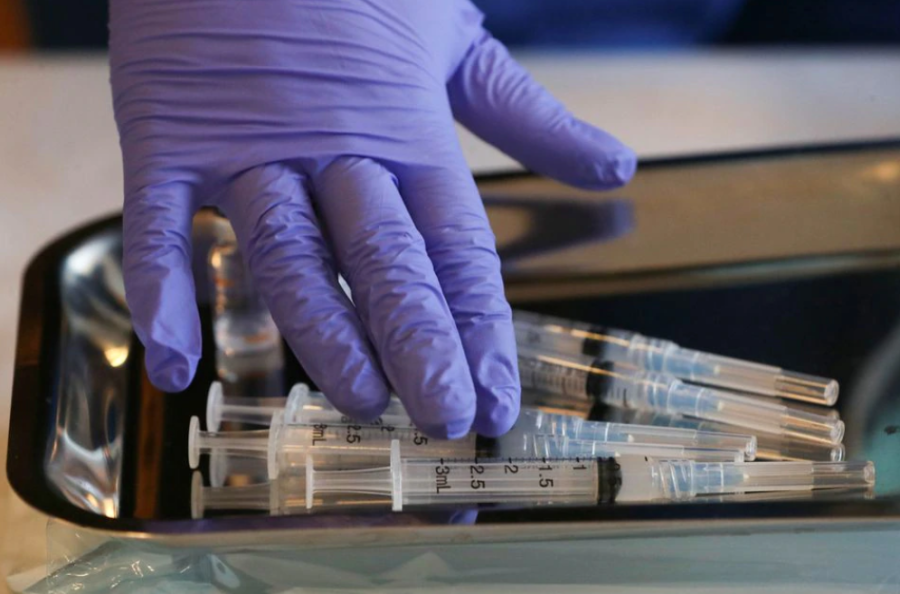Health
Nepali pharmaceutical companies mull setting up vaccine plants
The government has announced several incentives for vaccine manufacturing plants by publishing a notice in Nepal Gazette on August 9.
Prithvi Man Shrestha
A number of Nepali pharmaceutical companies have approached the Department of Drug Administration after the government announced incentives for firms that produce vaccines for infectious diseases including Covid-19.
On August 9, the Ministry of Industry, Commerce, and Supplies announced through a notice in the Nepal Gazette a number of incentives including a procurement guarantee for 60 percent of the total vaccine demand in the country while assuring credit at subsidised interest, tax and duty exemption on the import of machinery and electricity tariff waiver.
The government came up with the incentive package considering that countries without access to vaccines have suffered badly during the Covid-19 pandemic.
Currently, no pharmaceutical company in Nepal produces vaccines for human diseases. However, a few companies produce vaccines against animal diseases.
Santosh KC, information officer at the Department of Drug Administration, the drug regulatory body under the Health Ministry, said some domestic pharmaceutical companies approached the department to discuss the matter but nobody has sought approval for producing vaccines.
“We are ready to help the companies willing to set up a vaccine manufacturing facility,” KC said. According to the department, the government-run National Vaccine Production Laboratory and two private companies—Hester Bio-Science and Biovac Nepal—are producing vaccines for animal diseases in the country.
Some pharmaceutical companies told the Post that they were also exploring the potential of producing vaccines for human diseases.
Quest Pharmaceuticals is one of the domestic pharma companies exploring this option along with a few other domestic and foreign investment partners.
Umesh Lal Shrestha, managing director of the company, said his company was in discussion with three domestic pharmaceutical companies and a foreign company for setting up a plant to produce vaccines for humans.
“We are trying to secure foreign investment and a buyback guarantee from potential foreign investors if we are to go ahead with the plan to set up a vaccine plant,” he said. “Our initial estimate is that it may cost Rs5 to 6 billion to establish a vaccine plant.”
Shrestha refused to divulge the name of the local and foreign partners interested in the vaccine plant arguing that things were in the initial stages. “We are also in touch with the relevant government agencies,” he added.
According to Shrestha, they aim to produce vaccines for diseases such as pneumonia and flu including Covid-19. Nepal is basically reliant on donated doses of most vaccines against long-prevailing diseases to inoculate children.
The country, however, spent a lot of resources procuring Covid-19 vaccines. According to the Department of Customs, the country imported vaccines for human diseases worth Rs7.67 billion in the fiscal year 2020-21.
Pharmaceutical companies say the domestic market alone would not guarantee the recovery of investment in vaccine plants. Even though the government has committed to procuring 60 percent of the national vaccine demand, pharmaceutical companies say the external market should also be explored to sustain such plants.
“Because relying only on the domestic market involves big risks, we are preparing to partner with a foreign investor with a buyback guarantee,” said Shrestha.
They are also concerned about whether they would get a potential market in Nepal itself, with the country receiving most of the children's vaccines in donations.
Deepak Prasad Dahal, immediate past president of the Association of Pharmaceutical Producers of Nepal, said several pharmaceutical companies had shown interest in producing vaccines in the country.
“I am also interested in the project. But, we are concerned about how the market for the domestically-produced vaccines is guaranteed. If the government accepts donated vaccines and refuses to procure from domestic vaccine manufacturers, what will happen to the vaccine plants?” he asked. He also said that the vaccine manufacturer should be licenced to produce all biological and biotechnological products instead of limiting them to producing vaccines for Covid-19 and other infectious diseases, to make such plants economically feasible.
According to the government’s announcement, it would procure a maximum of 60 percent of the national demand for vaccines from the plant established in line with the government announcement after each of the vaccines completes the third phase of the clinical trial.
The safety and effectiveness of such vaccines should be above the threshold set by the World Health Organisation and they should have been listed by the global health body.
As per the government’s announcement, it will give a full waiver of the value-added tax, customs duty, and excise duty on the import of machinery for three years after the plant is registered.
Other facilities announced by the government include the availability of credits at just three percent interest rate (the interest rate fixed for special refinance by the central bank); availability of credit against the collateral of the project itself; electricity demand fee waiver for at least five years and ensuring reimbursement of 75 percent of the cost borne by the vaccine plant in building an access road and installing a dedicated line of electricity.
The history of vaccine production in Nepal dates back to 1961 when Nepal had started producing animal vaccines.
An animal vaccine production unit named ‘Veterinary Investigation Laboratory’ was established at Tripureshwar, Kathmandu in 1961 which produced Goat Tissue Vaccine (GTV) to be used in the Rinderpest Eradication Program.
The production of anti-rabies vaccine was started in 1970. Until 1987, these vaccines were used only in animals for pre and post-exposure treatments. From 1987, anti-rabies vaccines were also used in the post-exposure treatment of rabies in humans with approval from the WHO. This vaccine was used in humans from 1987 to 2006.
“There are certain human resources who had worked to produce rabies vaccines for humans. They can be used for vaccine plants for human diseases,” said Dahal.




 11.84°C Kathmandu
11.84°C Kathmandu















